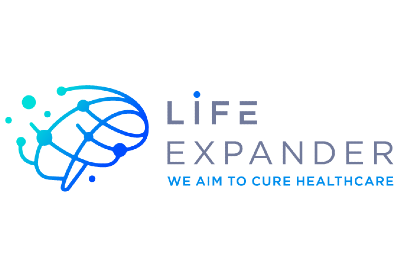Copyright © 2020 AI Venture Labs. All Rights Reserved
STARTUPS DETAILS
Life Expander A.I.
Embark on a journey with Life Expander AI, where we're not just a startup; we're pioneers at the frontier of health-tech innovation. Our quest? To harness the power of DeepTech and transform the landscape of healthcare. What We Create: Dive into our narrative on Medium.com, where Part 2 is eagerly awaited, or explore the initial insights we've shared. Our story is unfolding, and you're invited to be part of it. Who We Are: Imagine a world where health predictions are as precise as a timekeeper's watch. That's the world we're crafting at Life Expander AI. We're a vibrant, self-funded ensemble of visionaries committed to sculpting the future of health with our Digital Therapeutic Testbeds, Probability-Ranked Diagnoses, and Disease Trajectory Forecasts. Our secret weapon? The "Actionable Cognitive Biomedical Digital Twins" - your personalized health guardians. Our Passion: Our canvas is vast, painted with the bold strokes of Neuroinformatics, Neuroscience, Neurotechnology, Brain Fingerprinting, and Experimental Neurology, all while keeping a keen eye on Neurodegenerative Diseases. We're not just studying the brain; we're decoding its mysteries. Our Mission: We stand as vigilant sentinels, guarding against the unseen errors and biases that lurk in the shadows of healthcare. Our mission is steadfast: - To extend the tapestry of life, thread by precious thread. - To elevate the art of healthcare to its highest form, ensuring outcomes that resonate with hope. - To prune the excesses of healthcare spending, channeling resources where they'll flourish. Our Vision: We dream of a tomorrow where medical uncertainties are relics of the past, where every individual's health journey is illuminated by continuous, crystal-clear predictive insights. In our world, every life is a masterpiece of well-being, untouched by the tremors of doubt. Join us at Life Expander AI, where we're not just changing the game; we're redefining it.
Description
Embark on a journey with Life Expander AI, where we're not just a startup; we're pioneers at the frontier of health-tech innovation. Our quest? To harness the power of DeepTech and transform the landscape of healthcare. What We Create: Dive into our narrative on Medium.com, where Part 2 is eagerly awaited, or explore the initial insights we've shared. Our story is unfolding, and you're invited to be part of it. Who We Are: Imagine a world where health predictions are as precise as a timekeeper's watch. That's the world we're crafting at Life Expander AI. We're a vibrant, self-funded ensemble of visionaries committed to sculpting the future of health with our Digital Therapeutic Testbeds, Probability-Ranked Diagnoses, and Disease Trajectory Forecasts. Our secret weapon? The "Actionable Cognitive Biomedical Digital Twins" - your personalized health guardians. Our Passion: Our canvas is vast, painted with the bold strokes of Neuroinformatics, Neuroscience, Neurotechnology, Brain Fingerprinting, and Experimental Neurology, all while keeping a keen eye on Neurodegenerative Diseases. We're not just studying the brain; we're decoding its mysteries. Our Mission: We stand as vigilant sentinels, guarding against the unseen errors and biases that lurk in the shadows of healthcare. Our mission is steadfast: - To extend the tapestry of life, thread by precious thread. - To elevate the art of healthcare to its highest form, ensuring outcomes that resonate with hope. - To prune the excesses of healthcare spending, channeling resources where they'll flourish. Our Vision: We dream of a tomorrow where medical uncertainties are relics of the past, where every individual's health journey is illuminated by continuous, crystal-clear predictive insights. In our world, every life is a masterpiece of well-being, untouched by the tremors of doubt. Join us at Life Expander AI, where we're not just changing the game; we're redefining it.
